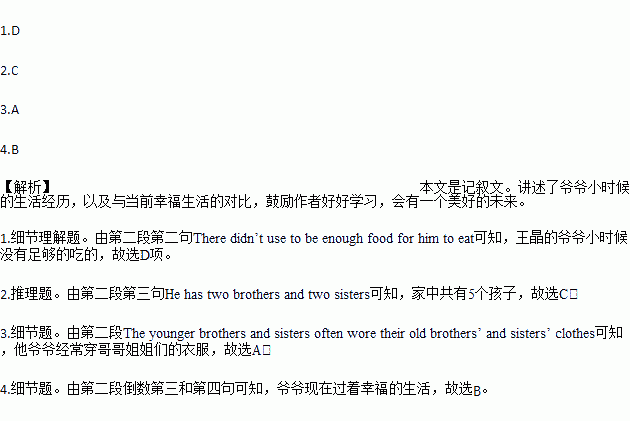题目内容
I am a middle school student. My name is Wang Jing. My grandfather is 70 years old now. He often says life has changed a lot. It becomes better and better. I asked him what life was like when he was a child. The following was what he said.
When he was a child, he used to feel hungry. There didn’t use to be enough food for him to eat. He has two brothers and two sisters. His parents were both farmers. They were very poor and couldn’t let their children eat as much as possible. As for clothes, they didn’t use to have enough clothes. They didn’t use to buy new clothes. The younger brothers and sisters often wore their old brothers’ and sisters’ clothes. My grandfather is the youngest. Only he went to school and had a job in the city. His brothers and sisters didn’t get an education and live in the countryside now. Now my grandfather has retired(退休) and lives a happy life. He can eat any food that he wants. He can buy clothes that he wants to buy. He says he is much happier than before. He often asks me to study hard. He says if I work hard, I can have a good future.
1.Wang Jing’s grandfather _________ get enough food when he was a child.
A. used to B. can
C. could D. couldn’t
2.Her grandfather’s parents has _________ children.
A. three B. four
C. five D. six
3.Whose clothes did her grandfather use to wear?
A. His brothers’. B. His mother’s.
C. His own. D. His father’s.
4.Is Wang Jing’s grandfather happy now?
A. No, he isn’t. B. Yes, he is.
C. We don’t know. D. He doesn’t feel happy.

